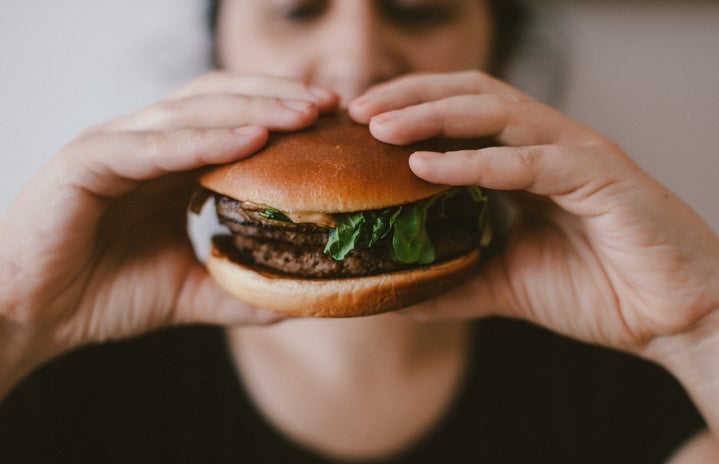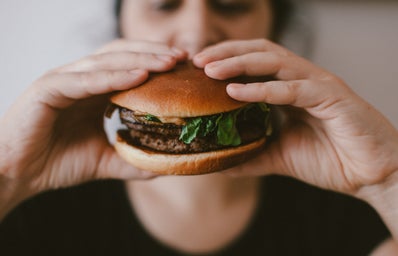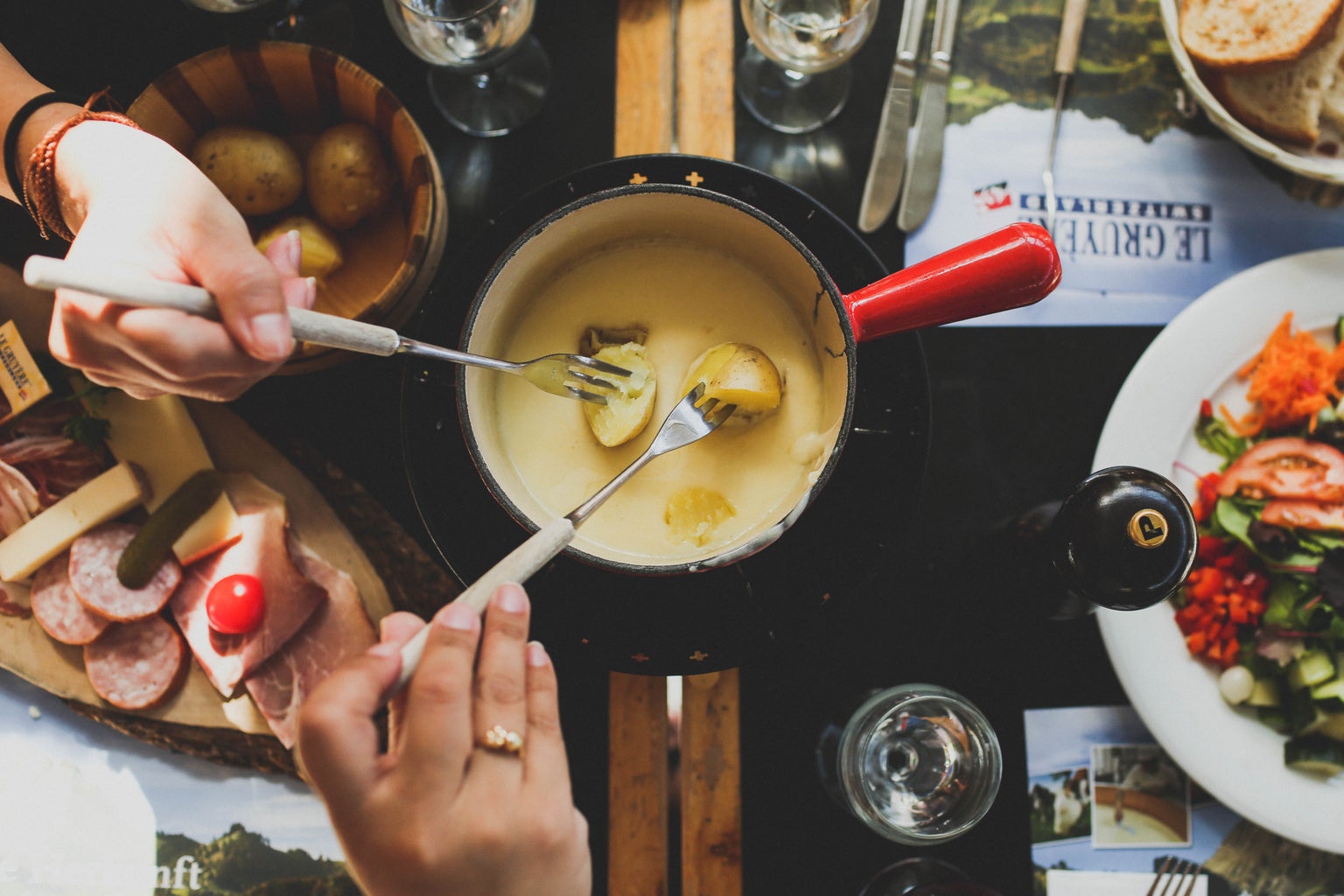*Trigger warning. This article does mention relationships with food, calorie counting, and eating disorders. Please watch out and take care of yourself. Some resources for help with eating disorders can be found here. his piece is not meant to offend anyone who uses a diet for their personal need/want. This is not medical advice. Please consult your doctor before trying any diet and see what is best for you.
In March of 2020, the world had shut down, the busy streets became quiet, and buildings became empty. Although the world outside was quiet, the thoughts in my mind were loud. I was left alone with my thoughts that I did not want to pay attention to. Being trapped inside makes you reevaluate your life, your hobbies, your sleep, and, most importantly, your health. During this time, I realized how my eating habits either relied on my emotions (stress eating) or my daily schedule. The public high school sets when you get to eat, and then you go home and your parents decide when and what you eat. But after quarantine, I got to eat when I wanted and what I wanted. So of course, the first couple of weeks I was just eating Kim Kardashian’s ramen recipe and whipped coffee. However, I felt guilty after eating and thought to myself “why do I hate myself after I eat? Why do I eat when I am not hungry?” It wasn’t until I discovered a TikToker named Brittani Lancaster who made “eat with me” videos. She showed me the freedom that comes from intuitive eating.
So…what is intuitive eating?
Intuitive eating stems from ten principles. These ten principles were created by the founder, Evelyn Tribole. To go deep into each of the ten principles would turn this article into a book, so I am going to share the three key components (in my opinion) of intuitive eating.
The first component (which is the first principle) is rejecting what diet culture has told you. Growing up, I always saw those commercials with skinny models trying to sell some powder or milkshake to make you lose ten pounds in ten days. Or, I saw plenty of ads for Weight Watchers and plenty of costly diets. Diet culture is set up to make you feel guilty about how you look and what you eat. That is why a lot of people were told certain foods were bad or evil and they would cause you to be fat. Our society is so terrified of appearing “overweight” or “fat,” and diet culture feeds on our fear by pushing diets (that may not work for some people) and then asking us to pay for it so we can be skinny. Diets can be so harmful and unsustainable, 35% of dieting becomes obsessive, and 20 to 25% of those diets turn into eating disorders. So in intuitive eating, scratch out everything that diet culture has ever taught. Intuitive eating teaches you to not label foods as “good” or “bad.” There are just some foods that need to be eaten in moderation.
The second component (principles two, five, and six) and one that I think is the foundation of intuitive eating is eating when you are hungry and stopping when you are full. Instead of eating on a schedule, you eat when your body sends its natural hunger signals (such as your stomach growling) and stop when you are full. If it is an hour before you are supposed to eat dinner and your stomach starts growling, instead of starving, you grab yourself a snack to nibble on until dinner. Regardless if you just ate breakfast and your body starts telling you it is hungry, you eat until you feel satisfied. At first, this can be difficult. Often when we are bored, we turn to food to entertain ourselves. This challenges us to stop before we eat and truly think “am I hungry? Is my body telling me to fuel myself?” As we eat, we take breaks after a couple of bites and continue to reassess our hunger levels so we don’t fill up so much where we feel like throwing up or so little where we are still hungry. It is all about finding that sweet spot. Honor your hunger, don’t judge it, and give your body what it is asking for regardless of time. Don’t feel guilty for what your body is asking for.
The last component (principles three, seven, and eight) is treating yourself with kindness. It is getting rid of the idea that you are a bad person for eating that extra piece of chocolate or calling yourself fat just because you went back for seconds. Our bodies are the ones that heal, protect and save us. We have the ability to enjoy food not just for survival but for all the million flavors it can bring. Listening to and honoring our bodies is one of the best things we can do for them and is one of the best ways to take care of our minds. The mind and the gut are so deeply connected (which explains why when you feel anxious you can feel like throwing up) and if our minds are negative about food, it will take away the great joy of tasting and consuming foods. We deserve to treat our bodies with the utmost respect and kindness. We deserve to enjoy food guilt and worry-free.
Intuitive eating is a difficult process at first and can feel overwhelming. But just like everything in life, it needs practice. The more you practice it, the better you will feel mentally and physically. All bodies are different so if dieting culture isn’t working for your body or mindset, it may be worth it to redevelop your relationship with food. If a diet works for you and your body, continue to use it (if it is safe). All in all, your body deserves all the love, nourishment, and support it can get. You deserve to eat and enjoy food guilt-free.




